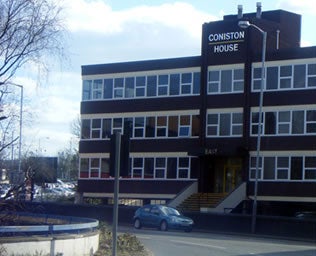'Unacceptable' levels of violence on mental wards

Thousands of seriously-ill mental patients are enduring "unacceptable" levels of violence on overcrowded NHS wards where they are vulnerable to sexual predators, an investigation has found.
The most comprehensive survey of mental health hospital care in England, published today by the Healthcare Commission, paints a picture of a dysfunctional service where patients feel threatened and unsafe with high levels of drug and alcohol abuse, a lack of therapeutic activities and a heavy dependence on temporary staff.
Almost 5,000 patients reported being physically assaulted in 2006-7 – 15 per cent of the total – and one in six trusts had levels of violence "significantly above" this average. "This is simply not acceptable in a 21st-century service and would not be tolerated in other walks of life," the report says.
Despite increased spending of £1.2bn in real terms on adult mental health services since 2002, one in four of England's 10,000 mental hospital beds is in a trust rated as "weak", which, says the commission, "does not meet the minimum requirements and reasonable expectations of patients and public".
The commission, the independent NHS inspectorate, conducted the review of all 69 mental health trusts in England after a series of reports in the past decade raised the alarm about the quality of in-patient services. While the NHS has focused on caring for mentally ill people in the community, the hospital wards, which accommodate 32,000 patients at any one time, have been neglected.
The findings show smaller rural trusts providing a better service than the large, urban trusts. Inner-city trusts operate in deprived areas with the most disturbed patients and the biggest problems in recruiting staff. However, the 379-bed, inner-city Central and North West London NHS Trust was among eight trusts rated as excellent by the commission.
The report is highly critical of the lack of safety and the levels of violence on the wards. Forty per cent of in-patients are detained under section because they are deemed to be a risk to themselves or others but the survey found there were 2,745 occasions over six months on which these patients absconded for periods ranging from one to 15 nights. Research shows that 4 per cent of all patients who go missing from mental hospital wards harm themselves or, rarely, others – equivalent to 200 incidents involving missing detained patients a year – including 12 suicides and three homicides – based on figures for separate four-year periods.
One reason why patients abscond is because they feel threatened. Citing figures from a National Audit of Violence carried out by the Commission with the Royal College of Psychiatrists in 2006-7, the report says that almost half, 43 per cent, of adults on in-patient wards had felt upset or distressed, 31 per cent had felt unsafe and 15 per cent – 4,800 patients – reported being physically assaulted. The worst violence was at Wolverhampton City Primary Care Trust where 39 per cent of patients said they had been assaulted.
The sexual safety of patients was made a key issue following an inquiry by the National Patient Safety Agency, which identified 122 incidents, including a number of alleged rapes. A survey by the magazine Community Care identified 300 sexual assaults in the past three years. Despite this, the report found some trusts made almost no effort to assess the sexual vulnerability of patients and identified the likelihood of predatory behaviour in only a quarter of them, while other trusts assessed all their patients. Almost a third, 30 per cent, said their nursing staff had no training in sexual safety.
Anna Walker, the commission's chief executive, said the report had thrown an "intense spotlight" on mental hospital in-patient care, which had highlighted the gap between inner-city and rural trusts. "Getting evidence of that gap is the first step to doing something about it," she said.
Louis Appleby, the national director for mental health services, said: "The World Health Organisation regards English mental health services as the best in Europe. I have visited excellent in-patient units around the country... However, there is still a lot more to do."
The Mental Health Network, representing most mental health trusts, said: "While it is clear that there are still places where acute inpatient services are not acceptable... a great deal of progress has been made in the past eight years."
Caring for the mentally ill
* One in four adults has a mental illness each year.
* There are about 80,000 admissions to mental hospitals each year.
* The cost to the NHS of in-patient mental health care in 2006-7 was £680m.
* The average cost per in-patient per day was £259.
* On average, mental patients stay in hospital for 18 days.
* The number of NHS in-patient mental health beds has fallen, while the number of private beds used by the NHS rose to 14 per cent of the total in 2007.
* The Healthcare Commission rated eight NHS trusts (accounting for 9 per cent of all beds) as excellent.
* Twenty trusts (accounting for 28 per cent of beds) were rated as good.
* Thirty trusts (which account for 40 per cent of beds) were rated fair.
* Eleven trusts (accounting for 23 per cent of beds) were considered weak.
Subscribe to Independent Premium to bookmark this article
Want to bookmark your favourite articles and stories to read or reference later? Start your Independent Premium subscription today.

Join our commenting forum
Join thought-provoking conversations, follow other Independent readers and see their replies